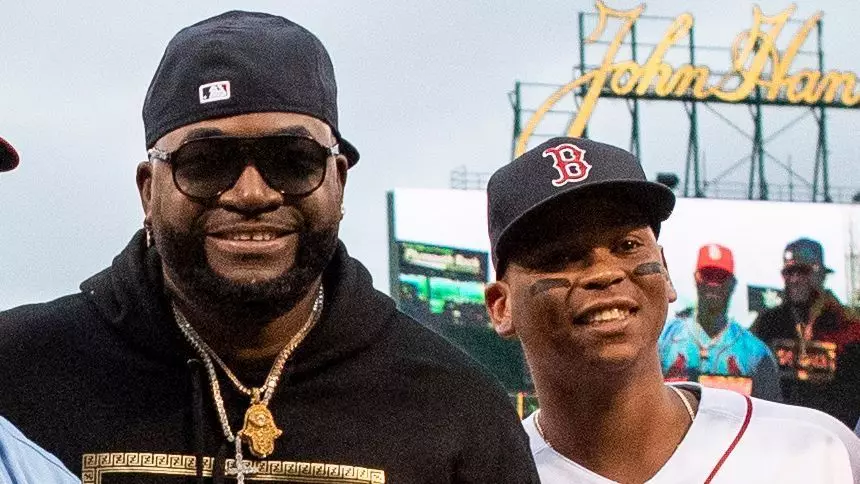Empowering Change: Why the Red Sox Should Trust Rafael Devers’ Decisions
Baseball has always been more than just a sport; it’s a tapestry of personal stories, triumphs, and challenges. This is especially true for players like Rafael Devers of the Boston Red Sox. When I think about Devers, I am reminded of his incredible power at the plate and his infectious enthusiasm for the game. But beyond his statistics and highlight reels, there’s an important conversation happening about his role on the team—and it’s one that resonates deeply with anyone who values player empowerment.
There’s something profoundly human about the struggle between organizational expectations and personal aspirations. As a fan of both baseball and stories of personal growth, I can’t help but root for Devers to have a say in his career trajectory. Hall of Famer David Ortiz recently shared some thoughts that struck a chord with me. He believes that Devers should have the autonomy to decide if he wants to transition from designated hitter to first baseman—a sentiment that adds a refreshing layer to the dialogue on player empowerment.
The idea of trusting athletes with their own career decisions is not just about logistics or statistics. It’s about acknowledging their humanity, their need for fulfillment, and their right to shape their destinies. For the Red Sox, this is more than just a tactical decision; it’s about fostering an environment where players like Devers can thrive both on and off the field. Let’s dive deeper into why this approach could be revolutionary for both Devers and the team as a whole.
Key Takeaways
- Player empowerment fosters better performance by boosting confidence and satisfaction.
- Trusting athletes to make career decisions respects their expertise and individuality.
- A cultural shift towards player autonomy can enhance team morale and success.
The Impact of an Organizational Shift
When the Red Sox signed third baseman Alex Bregman to a hefty contract, it set off a chain reaction that affected Devers’ role on the team. Initially pegged as a full-time designated hitter, Devers found himself at a crossroads when first baseman Triston Casas got injured. The expectation was that he would seamlessly transition to first base—a move that might seem simple on paper but is anything but in practice. David Ortiz argues that such decisions should account for more than just immediate team needs; they should consider the player’s readiness and psychological comfort.

In baseball, every decision is about timing and awareness. Ortiz highlights how thrusting Devers into an unfamiliar position without proper preparation could hinder his performance—an argument rooted in understanding player psychology. The shift from designated hitter to first baseman involves more than just physical adjustment; it requires mental readiness and adaptability. Forcing such a change prematurely may lead to decreased effectiveness on the field, underscoring why players should have input in these transitions.
Learning Through Experience
Ortiz doesn’t dismiss the possibility of Devers eventually embracing first base, but he believes this transition should emerge organically from Devers’ comfort level and experience. Learning a new position goes beyond mastering its physical demands; it involves developing a new sense of rhythm and integrating new responsibilities into one’s gameplay. Forcing this learning curve mid-season can disrupt not just the player’s performance but also their overall development.
This philosophy resonates in today’s game, where athletes face not only physical challenges but also intense psychological pressures from media scrutiny and fan expectations. Providing players like Devers with room to make decisions about their roles could nurture a deeper commitment to their craft and yield higher performance levels in the long run. It encourages them to invest in their development rather than feeling trapped by external pressures.
Cultural Reflections on Baseball’s Evolution
Ortiz’s reflections highlight how baseball culture has evolved over time. In his era, players were expected to fit into roles assigned by management, often at the expense of personal ambition or comfort. Today’s landscape is different; modern athletes are encouraged to advocate for themselves, pushing organizations to recognize them as integral parts of strategic planning. This shift signifies more than just changing times; it embodies a growing respect for players as individuals with valuable insights.

The evolution from seeing players as mere components in a machine to recognizing them as multifaceted contributors marks a significant cultural shift within sports. Ortiz’s comments transcend Devers’ situation—they echo a broader narrative advocating for player rights and preferences as fundamental aspects of team dynamics. In doing so, they remind us that respecting an athlete’s autonomy isn’t just ethical; it’s essential for building resilient, successful teams.
Final Thoughts
In such an unpredictable sport as baseball, empowering players to steer their own careers is not merely beneficial—it’s crucial for sustainable success. By embracing this perspective, organizations like the Red Sox can cultivate an environment where athletes feel valued and motivated. As Rafael Devers navigates this pivotal moment in his career, offering him the freedom to explore his options could lead not only to personal growth but also enhance team cohesion and performance on the field.
The journey ahead for both Devers and the Red Sox will undoubtedly be filled with challenges and opportunities alike. Yet by trusting in his ability to choose his path, they set an example of empowerment that could reshape how we think about player management in sports today.
Red Sox
Rafael Devers
player empowerment
baseball culture


Leave a Reply